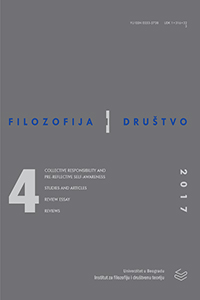Epistemic Justice as a Virtue in Hermeneutic Psychotherapy
Epistemic Justice as a Virtue in Hermeneutic Psychotherapy
Author(s): Snježana Prijić-Samaržija, Inka MiškulinSubject(s): Epistemology, Psychoanalysis, Hermeneutics
Published by: Institut za filozofiju i društvenu teoriju
Keywords: virtue epistemology; epistemic responsibility; epistemic justice; philosophy of psychiatry and psychotherapy; testimony; hermeneutic psychotherapy
Summary/Abstract: The value turn in epistemology generated a particularly influential new position – virtue epistemology. It is an increasingly influential epistemological normative approach that opts for the intellectual virtues of the epistemic agent, rather than the truth-value of the proposition, as the central epistemic value. In the first part of this article we will attempt to briefly explain the value turn and outline the basic aspects of virtue epistemology, underlining the diversity of epistemic attitudes associated with this approach and their positive impact on expanding epistemological horizons. The second part will be focused on the virtues of epistemic responsibility and epistemic justice as particularly appropriate for evaluating social processes such as, for example, testimony and conversational practices in general. In the third section we will show how the psychiatric and psychotherapeutic communicational act can be more efficiently analyzed and evaluated from the perspective of the virtue of epistemic justice, than from the traditional epistemic approach based on a monist concept of truth. The fourth and fifth section synthesize the discussion by introducing the concept of hermeneutic psychotherapy as a therapeutically and epistemically favorable framework for evaluating communicational acts in psychotherapy.
Journal: Filozofija i društvo
- Issue Year: 28/2017
- Issue No: 4
- Page Range: 1063-1086
- Page Count: 24
- Language: English

